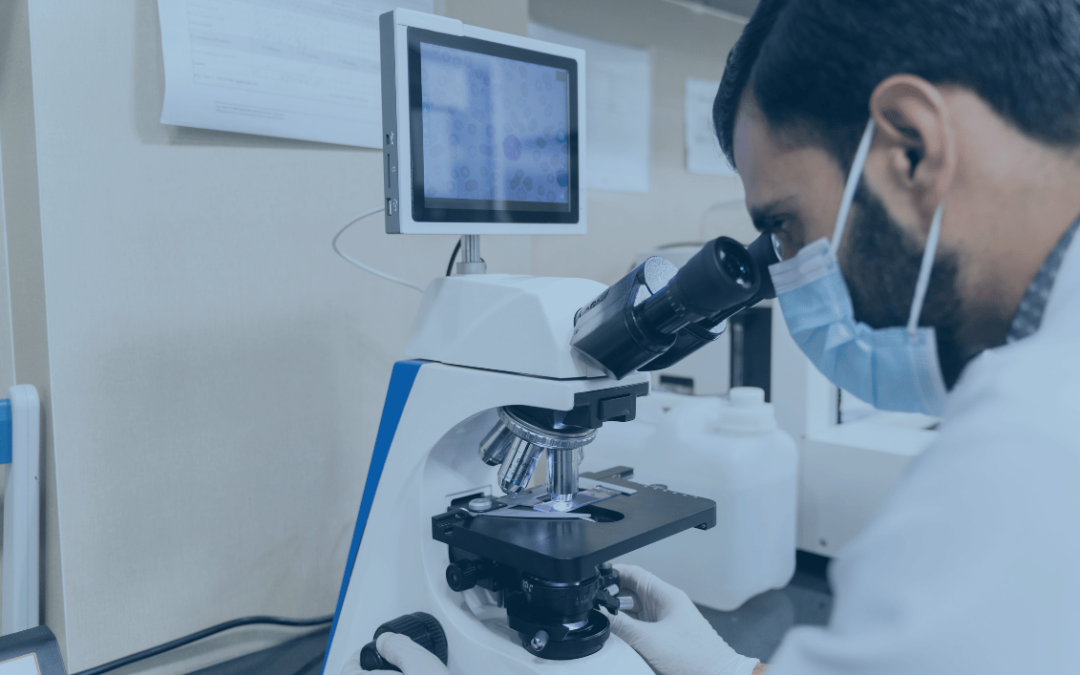In a win for digital pathology, CMS released new draft guidance this month clarifying that pathologists and other lab personnel may continue to review digital laboratory data, results, and images (“digital materials”) remotely, without obtaining a separate CLIA certificate.
The exception, which was first instituted during the Public Health Emergency, stipulates the work performed at the remote testing site must fall within the specialties/subspecialties under the primary site’s CLIA certificate.
Below are the full requirements provided by the College of American Pathologists for remote sign-out. Click here to view a summary of key waivers and exceptions that expired alongside the end of the PHE on May 11, 2023.
Requirements for remote sign-out
With regards to remote sign-out of cases, physical slides read under a microscope cannot be read remotely under a primary location CLIA certificate. This would be considered a secondary site and would need a separate CLIA certificate. To review digital slides and data remotely, pathologists and personnel must meet the following criteria:
- The primary, home site, laboratory has a current, unrevoked or unsuspended certificate of waiver, registration certificate, certificate of compliance, certificate for PPM procedures, or certificate of accreditation.
- The primary laboratory complies with other applicable federal laws, including HIPAA.
- The laboratory director of the primary site CLIA number is responsible for all testing performed under its CLIA certificate, including testing and reporting performed remotely.
- Survey findings will be cited under the primary laboratory’s CLIA certificate. Enforcement actions, if taken, will affect the primary laboratory’s CLIA certificate.
- The primary laboratory’s test reports must indicate the remote site location where the testing is performed. The laboratory may use a coding system rather than the remote site address, eg, personnel residence, on the final report. This coding system must be available upon request.
- The primary laboratory must be certified in the specialties and/or subspecialties of the work performed at the remote site.
- The primary laboratory must provide the CMS with a list of all staff working remotely, upon request.
- The primary location is responsible for retaining all documentation, including testing performed by staff working remotely.
Definitive drug testing LCDs retired, would have capped total targets
Toxicology labs received good news this month after proposed Local Coverage Determinations (LCD)s in six Medicare Administrative Contractors (MACs) that would have limited reimbursement for definitive drug testing to no more than 14 drug classes were retired, according to a report in the May Issue of Laboratory Economics.
The proposed changes would have resulted in effective Medicare reimbursement cuts of 21% for G0482 (definitive drug testing for 15-21 drug classes) and 37% for G0483 (22+ drug classes). Had these changes passed, it would have resulted in a total estimated loss of more than $100 million per year in Medicare revenue for tox labs.
These MACs are now working to amend language for newly proposed LCDs to focus on patient risk assessment and the documentation doctors should use before ordering drug testing. The new proposals contain no drug class caps for the definitive drug testing codes.

LCDs, MACs?
Thanks for pointing out that we forgot to clarify those terms on first reference. They represent Local Coverage Determinations (LCD) and Medicare Administrative Contractors (MACs). Essentially, LCDs are billing and reimbursement guidelines/limits that can differ across various Medicare jurisdictions. This article references proposed LCDs that would have impacted definitive drug testing, but were retired before they could be implemented.